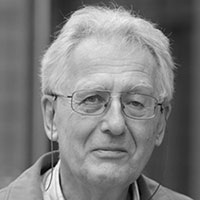Klaus Rajewsky

Max-Delbrück-Center for Molecular Medicine, Berlin
Klaus Rajewsky developed a general method of targeted mutagenesis in mouse embryonic stem cells by introducing bacteriophage- and yeast-derived recombination systems, which opened the way for conditional gene targeting. Using this and other methods in his immunological work, he developed, together with N. A. Mitchison and N. K. Jerne, the antigen-bridge model of T-B cell cooperation, identified germinal centers as the sites of antibody somatic hypermutation, the B cell antigen receptor as a survival determinant of B cells, and the germinal center as a major site of human B cell lymphomagenesis, including Hodgkin lymphoma. Over the last years the work of his group has focused on mechanisms of microRNA control and the development of mouse models of human B cell lymphomas.
After postdoctoral work at the Institut Pasteur in Paris he built an immunology department at the Institute for Genetics at the University of Cologne, where he stayed for 38 years, was the founding Program Coordinator of the EMBL Mouse Biology Program at Monterotondo near Rome, worked for 10 years at Harvard Medical School in Boston, and is since 2012 at the Max-Delbrück-Center for Molecular Medicine in Berlin, Germany.
Klaus Rajewsky won numerous scientific awards and is a member of several learned societies including the National Academy of Sciences of the USA and the American Academy of Arts and Sciences.
Rajewsky's article
September 2017
